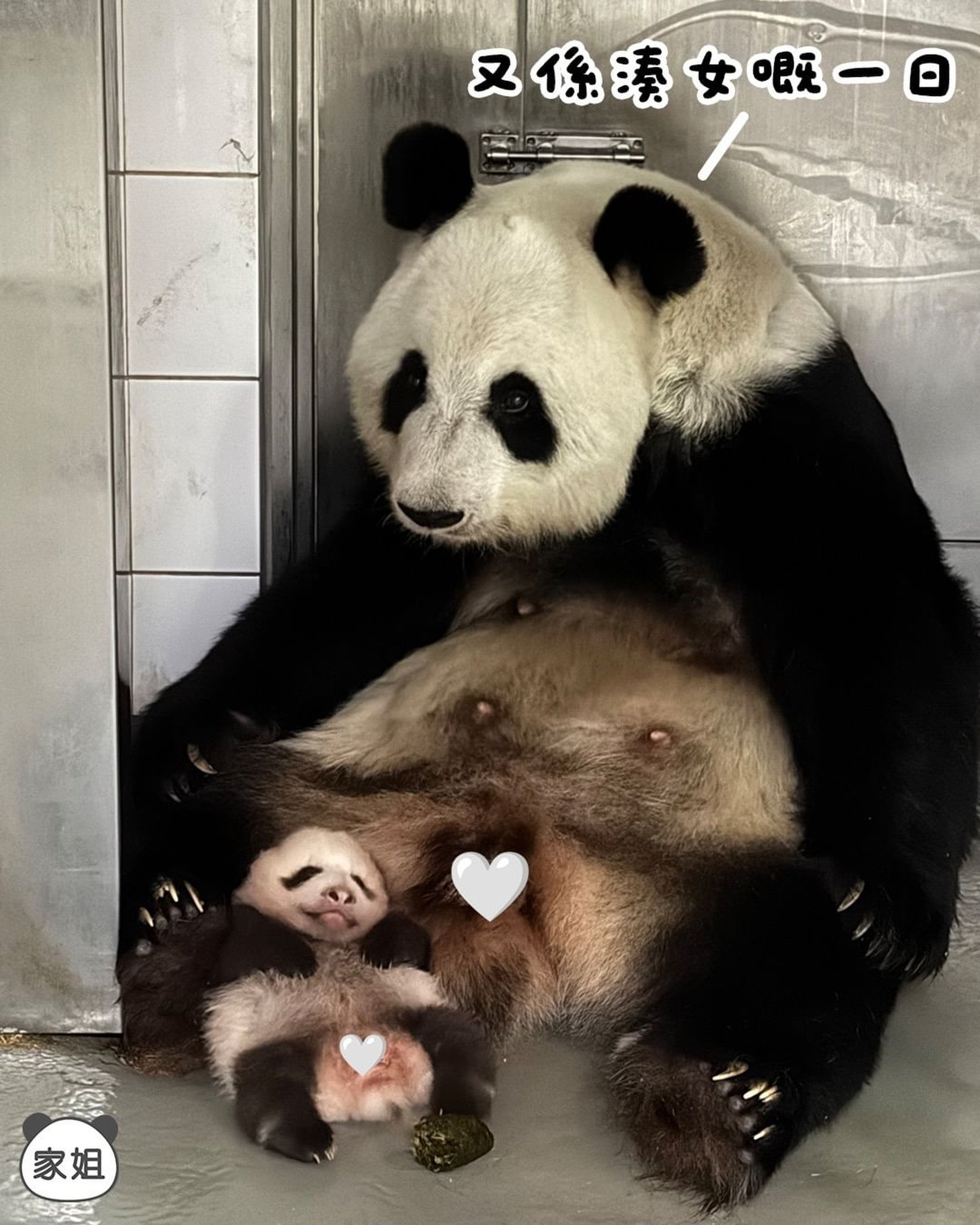Panda Watch: Hong Kong cub ‘winces’ at mother’s poo, experts explain scent marking behaviour
Panda Watch is a weekly blog by the Post that tracks the latest on the baby panda twins – the first to be born in Hong Kong – until they are ready to meet the public. T
Hong Kong’s twin panda cubs are now 74 days old.
Ocean Park posted a funny moment between mother Ying Ying and her female cub, nicknamed “Elder Sister”, in their den.
Do you have questions about the biggest topics and trends from around the world? Get the answers with SCMP Knowledge, our new platform of curated content with explainers, FAQs, analyses and infographics brought to you by our award-winning team.
The older of the twins was resting on Ying Ying’s legs when her mother pooed and left some droppings next to her, which seemed to cause the cub to wince.
Ying Ying later appeared to comfort “Elder Sister” by hugging her tightly.
Despite the cub’s apparent reaction, the park explained that panda faeces do not smell as bad as some may assume and carry a slight scent of bamboo leaves.
“Giant pandas, which primarily eat bamboo, have droppings that contain a lot of bamboo fibre,” said the park.

Meanwhile, An An and Ke Ke, the adult giant pandas gifted to the city by Beijing, are settling into their new home at the park’s Hong Kong Jockey Club Sichuan Treasures enclosure after completing a 30-day quarantine.
A naming competition for the pair has received over 22,600 entries. Submissions were closed on Monday.
An An and Ke Ke will undergo training in the coming days to get familiar with their new surroundings. They are set to meet the public at around Christmas.
Howard Chuk Hau-chung, head of zoological operations and conservation at the park, said pandas would normally spend the first two days in new or unfamiliar environments marking the territory with their scent to increase their sense of security. This was part of their natural behaviour, he explained.
An An and Ke Ke had rubbed their secretions on the walls and floors of their room during quarantine, and are expected to do the same at their recently renovated and expanded enclosure.
A recent study by the Wolong Nature Reserve found that although pandas are largely solitary creatures, they maintain social networks through scent marking.
Through scent marking on trees, pandas keep track of family and friends, share updates on life events and even explore potential mates, researchers found.
This communication method allows pandas to share information without being in the same place at the same time.

According to the Chengdu Research Base of Giant Panda Breeding, scent marking is an essential part of panda behaviour.
The animals often rub their bottoms on their surroundings to mark their territory with a mix of urine and anal gland secretions.
“Most of the communication among giant pandas occurs through scent marks left in their habitats,” wrote the centre on its website.
“They apply secretions from their anal glands to posts, tree stumps, walls, the ground, and places they frequently pass. These scent marks help them avoid or find one another.”
It added that using scent to mark territory was a way of maintaining peace among giant pandas in the bamboo forest, as giant pandas will avoid the area if they smell another’s secretions.
During the breeding season, the scent of a female panda may indicate that she is ready to mate and wishes to attract males.
A female is more likely to accept a male whose scent she recognises and has encountered before.
Visual signals are insignificant to giant pandas as they spend most of their time in dense, misty bamboo forests in the mountains, making it difficult for them to spot one another, it added.













Leave a Reply